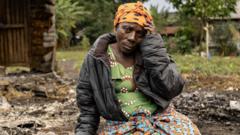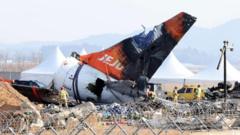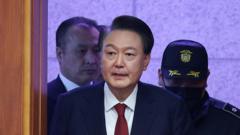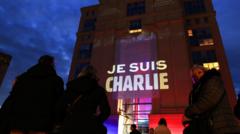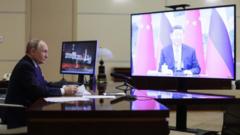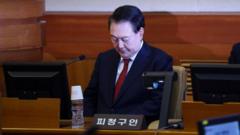In a dramatic escalation of South Korea's political crisis, the Seoul court has extended the detention of impeached president Yoon Suk Yeol for a further 20 days as investigations continue into his attempted martial law order. The ruling comes after an uproar, with supporters clashing with police outside the courthouse following the decision. Yoon’s detention follows his controversial call for martial law which has left the nation deeply divided.
**Extension of Detention for Impeached South Korean President Yoon Suk Yeol**
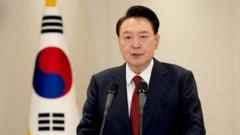
**Extension of Detention for Impeached South Korean President Yoon Suk Yeol**
A Seoul court has ruled to prolong the detention of Yoon Suk Yeol amid public unrest.
Yoon, age 64, is facing serious accusations of insurrection due to his botched martial law proposal on December 3. This situation has ignited widespread protests and a judicial crisis, igniting feelings of agitation and calls for accountability among an increasingly polarized population. Just last month, Yoon cited "anti-state forces" in parliament and referred to North Korea as motivating factors for his extreme measures. His subsequent impeachment by parliament has not quenched the rising tensions on the streets and among supporters and detractors.
The court’s decision indicated a fear that Yoon could jeopardize crucial evidence if he were to be released. His lawyer, Yun Gap-geun, emphasized that Yoon would not cooperate with investigators, further complicating the detention saga. Following the ruling, supporters stormed the courthouse in a show of defiance, leading to clashes with law enforcement and increased security concerns.
Acting President Choi Sang-mok expressed disappointment at the violence, stating it contradicted democratic values while urging future security measures. As South Korea continues to grapple with these ongoing events, the public remains sharply divided over Yoon’s controversial actions, leading to sustained protests and public calls for reform in the wake of his turbulent presidency.
Caught in the eye of a political storm, South Korea stands at a crucial crossroads as it faces questions of governance, justice, and the future of its democracy.
The court’s decision indicated a fear that Yoon could jeopardize crucial evidence if he were to be released. His lawyer, Yun Gap-geun, emphasized that Yoon would not cooperate with investigators, further complicating the detention saga. Following the ruling, supporters stormed the courthouse in a show of defiance, leading to clashes with law enforcement and increased security concerns.
Acting President Choi Sang-mok expressed disappointment at the violence, stating it contradicted democratic values while urging future security measures. As South Korea continues to grapple with these ongoing events, the public remains sharply divided over Yoon’s controversial actions, leading to sustained protests and public calls for reform in the wake of his turbulent presidency.
Caught in the eye of a political storm, South Korea stands at a crucial crossroads as it faces questions of governance, justice, and the future of its democracy.



